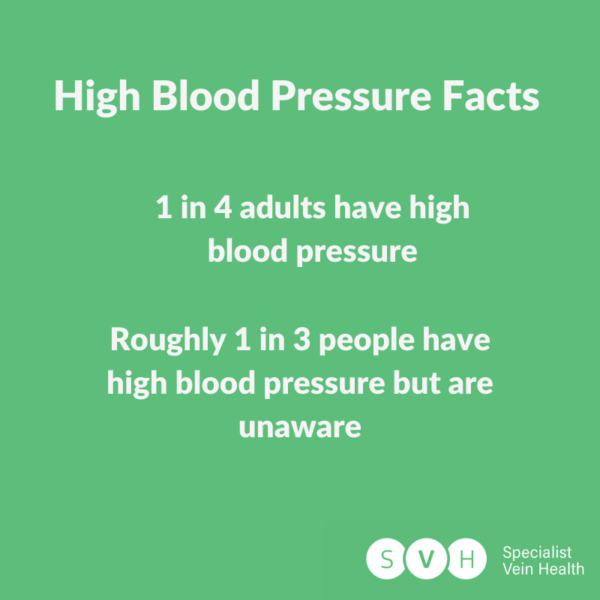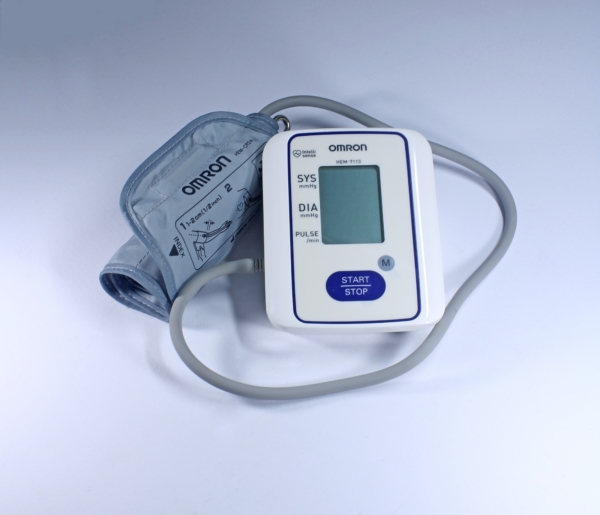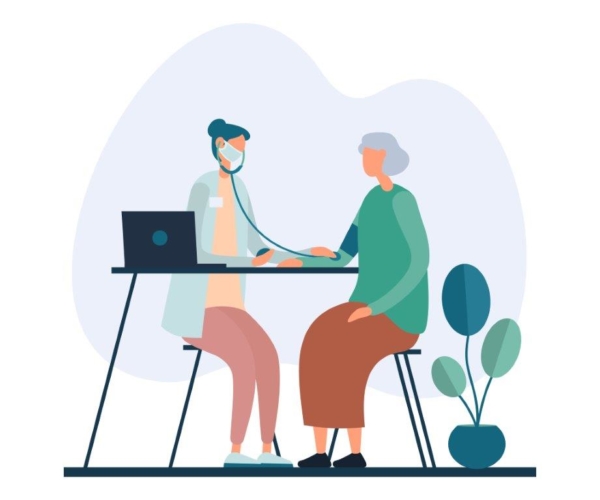We sat down with one of our vascular surgeons, Mr. JK Wicks, to ask if there is a connection between high blood pressure (HBP), sometimes called hypertension, and vascular disease (VD).

Primary Hypertension
Mr. Wicks tells us that in most cases, it is difficult to know what has caused HBP. Some risk factors include:
- A family history of HBP,
- Age: Blood pressure rises in men after age 35 and in women after age 45,
- Gender: Statistically, men are more likely to have HBP than women,
- Smoking: Is known to increase blood pressure,
- Environment: Lifestyle and dietary choices.
Secondary Hypertension
This often occurs quickly and can become more severe than primary hypertension. Mr. Wicks says a vascular surgeon will often do an ultrasound scan of renal arteries and/or other tests to rule this out.
Causes of secondary hypertension include:
- Kidney disease,
- Heart defects,
- Obstructive sleep apnea,
- Side effects of medications,
- Illegal drugs and/or alcohol abuse,
- Adrenal gland abnormalities,
- Certain endocrine tumors.

High Blood Pressure warning signs
HBP is often referred to as the silent killer. This is because there may be no symptoms. Many people find out they have HBP because they go to their GP for another reason and have their blood pressure taken. They may find out because they have problems with their heart, kidneys, or brain. HBP has been shown to increase the rates of kidney failure, coronary artery disease, heart failure, and strokes.
Symptoms found in late-stage High Blood Pressure include:
-
- Headaches,
- Loss of concentration,
- Shortness of breath,
- Nosebleeds,
- Flushing,
- Chest pain,
- Visual changes,
- Blood in the urine.
We asked Mr. Wicks why people with HBP are more likely to develop related vascular diseases (VD). VD includes any condition that affects your circulatory system: all arteries outside of the heart such as peripheral arteries (PAD), arteries that go to your neck (carotids), or through your abdomen (aorta) and veins.
Mr. Wicks says that it is not understood exactly how HBP affects VD. It is thought that the HBP puts added force against and/or within vessel walls, which can cause inflammation. Over time, this extra pressure can damage vessels, hardening them and making them more vulnerable to plaque build-up. This plaque (commonly known as atherosclerosis) build-up causes narrowing of arteries. The narrowed artery limits or blocks the flow of blood to the heart muscle, depriving one of the most important body organs of oxygen. It is not healthy to have reduced blood flow to any part of your body.

But there is good news! According to Mr. Wicks, if you have HBP you can go on medication to control it. This may take a little time, and often monitoring your daily BP and keeping a written record of it will help your GP treat the issue.
7 things you can do to help manage and lower High Blood Pressure:
- Take prescribed BP controlling medication,
- Increase activity and exercise more,
- Lose weight if you overweight,
- Stop smoking,
- Reduce sugar and processed carbohydrates,
- Reduce excess stress,
- Reduce alcohol intake.
If you or someone you know has either of these conditions, please seek medical help. Don’t wait until it gets worse and symptoms can no longer be ignored.
If you would like to book a consultation with either Mr. JK Wicks or Dr. Lupe Taumeopeau click here.
Referrals are not always necessary. Contact us today.